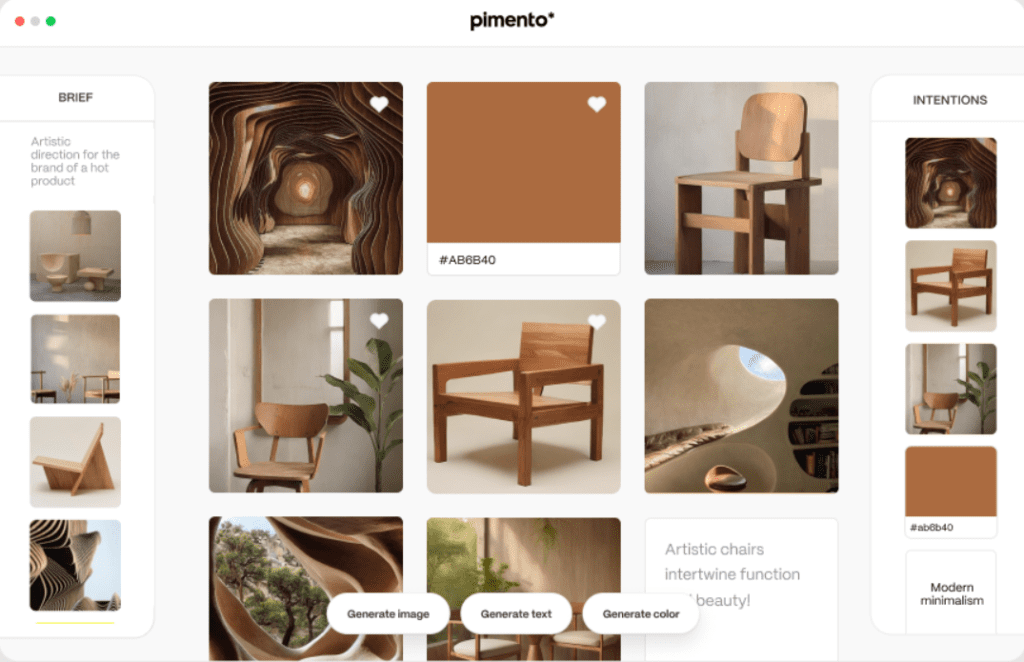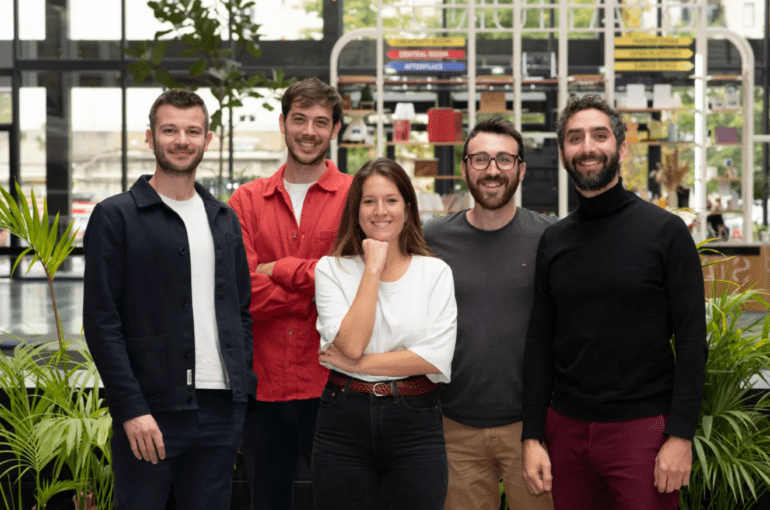TL;DR:
- Pimento, a French startup, utilizes generative AI to facilitate ideation, brainstorming, and moodboarding.
- It recently secured $3.2 million (€3 million) in funding from a diverse group of investors.
- Pimento serves as a vital tool for creative teams embarking on projects like brand redesign, ad campaigns, video games, and animation movies.
- The platform allows users to compile reference documents with images, text, and colors, serving as inspiration and project guidelines.
- Unlike generic AI models, Pimento tailors its output to the user’s initial brief, fostering creativity.
- Users can merge images, select colors, reuse text, and request more variants to iterate on their projects.
- Pimento plans to add features like customizable boards and further product development.
Main AI News:
In the realm of creative processes, ideation, brainstorming, and moodboarding stand as the cornerstone of any project’s inception. Pimento, a pioneering French startup, has harnessed the power of generative AI to redefine this critical phase. With a recent infusion of $3.2 million (€3 million) in funding from a diverse group of investors, Pimento is poised to transform the way creative teams embark on their journeys.
Creative teams tasked with a brand redesign, an advertising campaign, the development of an upcoming video game, or the creation of an animation film are now equipped with Pimento as their go-to tool. It serves as the catalyst for their research process, allowing them to compile a comprehensive reference document that includes images, text, and colors—a source of inspiration and the guiding light for the project’s subsequent stages.
However, the creative terrain is known for its twists and turns. Clients and managers often exhibit fickleness, altering their directions with each passing moment. A directive given today may be discarded tomorrow, forcing creative workers to recalibrate their efforts continually.
Presently, creatives rely on platforms like Pinterest, Instagram, Behance, Canva, and Figma to curate images from the web and create mood boards. The tools they employ invariably shape their creativity. Pimento, however, aspires to elevate creativity through the application of artificial intelligence.
Co-founder Tomás Yany elaborates, “It allows you to explore more directions more quickly, so that you can produce projects of higher quality.” He emphasizes the unique aspect of AI models, stating, “They bring a wealth of knowledge that no designer will ever have. They’ve seen a lot of things, because they were originally trained with data from Japan and Latin America.”
Pimento’s seed funding round was spearheaded by Partech and Cygni Capital, with notable participation from angel investors like Julien Chaumond (Hugging Face), Stanislas Polu (Dust), Thibaud Elzière (Hexa), Jean-Charles Samuelian (Alan), Igor Manceau (former creative director at Ubisoft), Jonathan Widawski (Maze), Alessandro Sabatelli (ex-Apple), and Nicolas Steegmann (ex-Stupeflix).
So, how does Pimento operate? The co-founders demonstrate the product, beginning with the user providing a textual brief outlining the project’s objectives. A handful of images are then incorporated to serve as the project’s foundation. Pimento employs AI models in tandem with these instructions to generate images, text, and colors. The interface offers three buttons for on-demand generation of images, text, or colors.
Should any of Pimento’s suggestions pique your interest, they can be saved for later use. Upon completion, a link can be generated to share a board featuring all the saved images, colors, and text.
Pimento’s differentiator from off-the-shelf image-generating AI models lies in its customization. Everything generated by Pimento is tailored to the initial brief, becoming a creative companion to the user. Furthermore, the platform allows for iterative processes. Users can merge two favored images, select colors from images, reuse text to generate additional images, and request more image variants.
Co-founder Florent Facq emphasizes the diverse modes of interaction with these AI models, stating, “There’s a debate on how you interact with these AI models. I don’t think the future is a chat interface where you enter a prompt.” While Pimento does support prompting, it envisions multiple avenues for content interaction.
In the pipeline, Pimento plans to introduce additional features, including the ability to customize boards shared with teams or clients. Currently, the platform leverages fine-tuned open-source models, such as Stable Diffusion, Llama, and soon Mistral AI.
The road ahead for Pimento is paved with exciting possibilities. With its recent funding injection, the startup is well-equipped to embark on a journey of product development, promising innovations that are bound to reshape creative processes across industries. It will be fascinating to witness how businesses and creative minds embrace and adapt to this transformative tool.

Source: Pimento
Conclusion:
Pimento’s innovative AI-driven approach to ideation and moodboarding offers creative teams a dynamic tool for inspiration and project guidance. With its recent funding, Pimento is poised to disrupt the creative industry, enhancing the quality and efficiency of creative processes. Its ability to tailor content to individual project briefs positions it as a valuable asset in the market, and its planned feature expansion promises further growth and innovation in the field.

